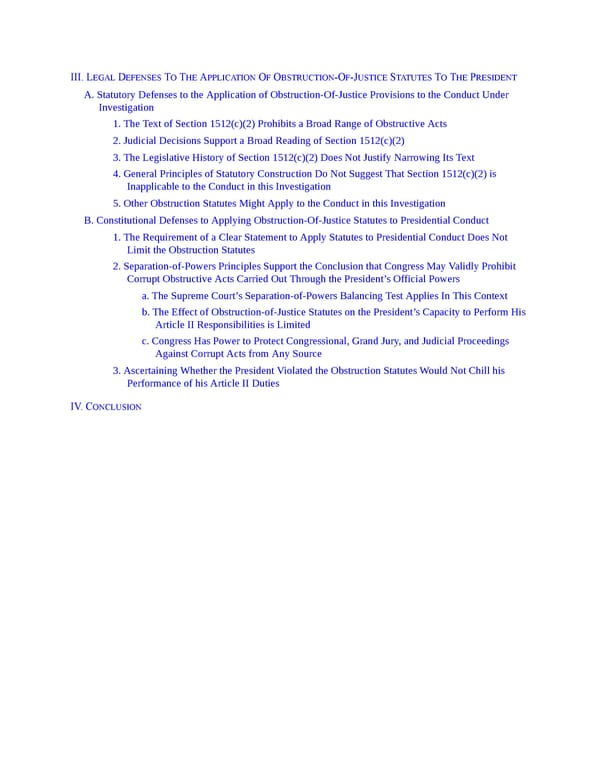III. LEGAL DEFENSES TO THE APPLICATION OF OBSTRUCTION-OF-JUSTICE STATUTES TO THE PRESIDENT A. Statutory Defenses to the Application of Obstruction-Of-Justice Provisions to the Conduct Under Investigation 1. The Text of Section 1512(c)(2) Prohibits a Broad Range of Obstructive Acts 2. Judicial Decisions Support a Broad Reading of Section 1512(c)(2) 3. The Legislative History of Section 1512(c)(2) Does Not Justify Narrowing Its Text 4. General Principles of Statutory Construction Do Not Suggest That Section 1512(c)(2) is Inapplicable to the Conduct in this Investigation 5. Other Obstruction Statutes Might Apply to the Conduct in this Investigation B. Constitutional Defenses to Applying Obstruction-Of-Justice Statutes to Presidential Conduct 1. The Requirement of a Clear Statement to Apply Statutes to Presidential Conduct Does Not Limit the Obstruction Statutes 2. Separation-of-Powers Principles Support the Conclusion that Congress May Validly Prohibit Corrupt Obstructive Acts Carried Out Through the President’s Official Powers a. The Supreme Court’s Separation-of-Powers Balancing Test Applies In This Context b. The Effect of Obstruction-of-Justice Statutes on the President’s Capacity to Perform His Article II Responsibilities is Limited c. Congress Has Power to Protect Congressional, Grand Jury, and Judicial Proceedings Against Corrupt Acts from Any Source 3. Ascertaining Whether the President Violated the Obstruction Statutes Would Not Chill his Performance of his Article II Duties IV. CONCLUSION
 Mueller Report PDF Page 272 Page 274
Mueller Report PDF Page 272 Page 274